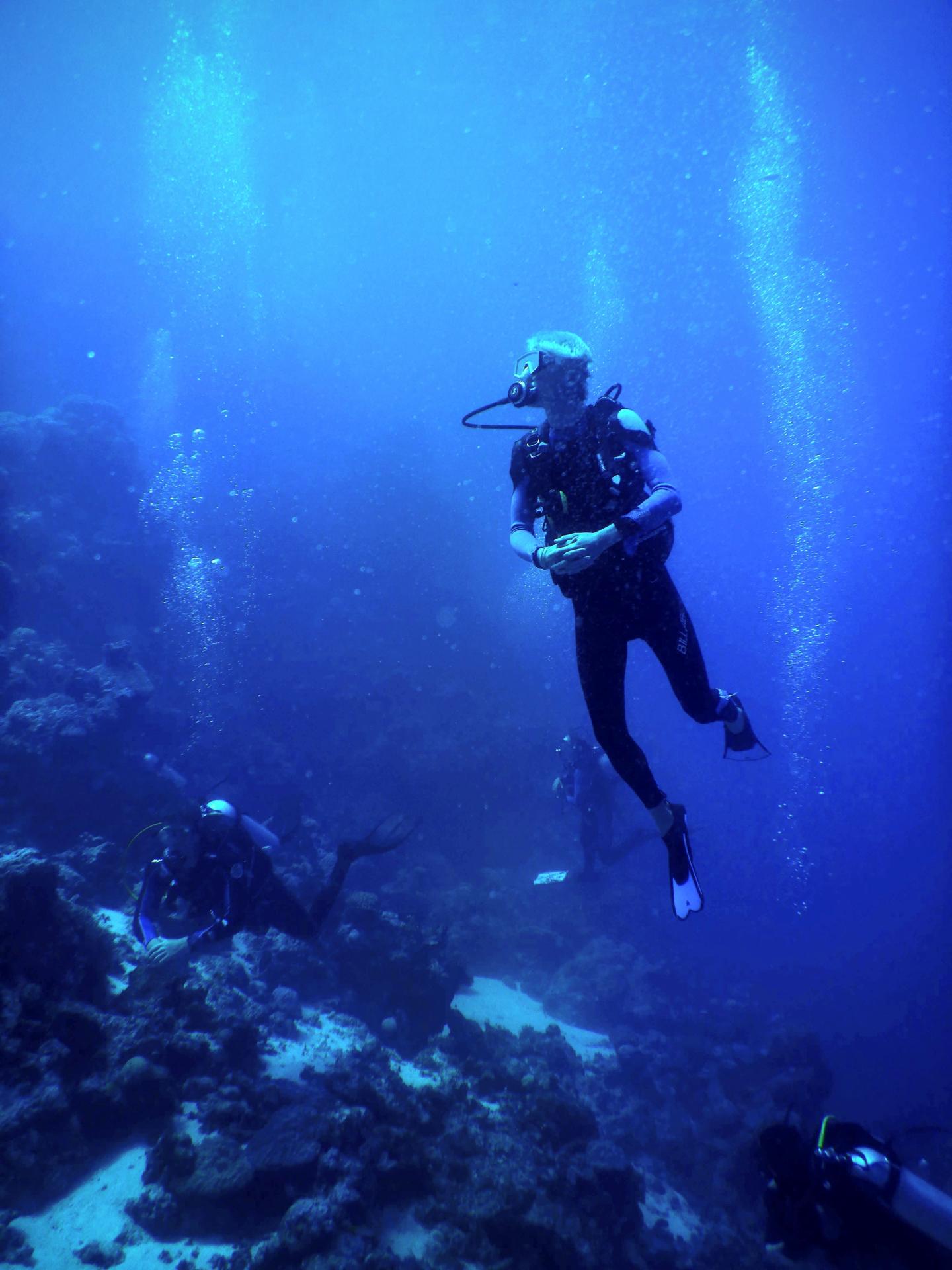Environmentalists feel pain when they see destruction of nature and should be allowed to cry, write Gordon, Radford, and Simpson, because that grief and post-traumatic recovery can strengthen resolve and inspire scientific creativity.
They argue that environmental scientists feel trauma much like health care, disaster relief, law enforcement, and military personnel, and those witnessing the destruction of the natural world should likewise have well-defined organizational structures and active strategies for employees to manage their emotional distress. This would facilitate healthy grieving processes, enhance psychological recovery, and reduce the risk of long-term mental health impacts.

Tim Gordon diving on a degraded reef on Australia's northern Great Barrier Reef. Credit: University of Exeter
Tim Gordon, lead author of the letter and a marine biologist from the University of Exeter, said, "We're documenting the destruction of the world's most beautiful and valuable ecosystems, and it's impossible to remain emotionally detached. When you spend your life studying places like the Great Barrier Reef or the Arctic ice caps, and then watch them bleach into rubble fields or melt into the sea, it hits you really hard."
They say many scientists experience "strong grief responses" to the current ecological crisis, and there are profound risks to ignoring this emotional trauma.
"If we're serious about finding any sort of future for our natural ecosystems, we need to avoid getting trapped in cycles of grief. We need to allow ourselves to cry - and then see beyond our tears," Gordon said.






Comments